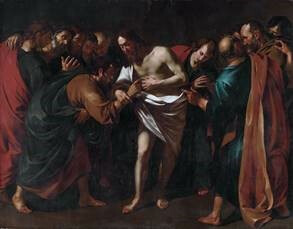The Road Slow Traveled
There is a difference between highways and roads – literally and spiritually speaking. Highways (think: interstates) are meant to get us from point A to point B as smoothly, quickly and efficiently as possible. It is evident in their very construction. There are no sharp turns on interstates. Nor are there sudden ups and downs. Even in the mountains, effort is taken to alter the terrain in such a way that makes smooth driving on interstate highways possible. Inclines, declines and turns of all kinds are much more gradual than sudden. All of this allows for higher speed limits on highways which, in turn, enables us to arrive more quickly at our destination. Which further means that the scenery through which the highway races is more difficult to take in. Rather, it blurs by us almost as if it is in our way as we rush it by.
The opposite, however, is true of roads. The purpose of the road is to follow the terrain of the landscape. The land over and through which the road ribbons is not altered at all. Instead it forces the road into quite sudden ups, downs, rights and lefts. Subsequently, we are compelled to drive slower on roads, in order carefully to navigate the changes that come. Traveling on roads invites us to take in the scenery as we pass it by – the minute details of a life that otherwise blur and whiz by when we travel in interstate highways.

Full disclosure: I’m more of an interstate guy when I travel. I don’t mind driving long stretches and traveling by car in general. But I also like to “make good time.” But when Jesus says of himself in John 14:6, “I am the way, the truth and the life,” the word he uses for way is “road.” As in... the equivalent of a dusty, gravelly road that meanders through the landscape following the terrain as opposed to manipulating it. It is almost as though Jesus is telling us that the destination itself is not more important than the path taken to get there. And that to find him in our walk of faith is to slow down and take in the simple and ordinary things around us that would otherwise blur by as we race past them.
Robert Frost famously coined the term, “the road less traveled,” but here Jesus seems to say that the way to find him is by taking the road slow traveled. And this is what Advent is – a slow journey over a country road to the manger in Bethlehem which allows us to take in the Word of God in a way not possible if we were racing through December from the first to the 24th. From a spiritual standpoint, “taking our time” is always preferrable to “making good time.”
So as we continue our Advent journeys toward Christmas, may we consider ways that you can make “taking our time” a more significant part of the journey. With all that is going on in our households, workplaces and the world that compels us to the highways, let us think about taking the road slow traveled. It is, after all, the way to find the Christ we’re looking for at Christmas.




